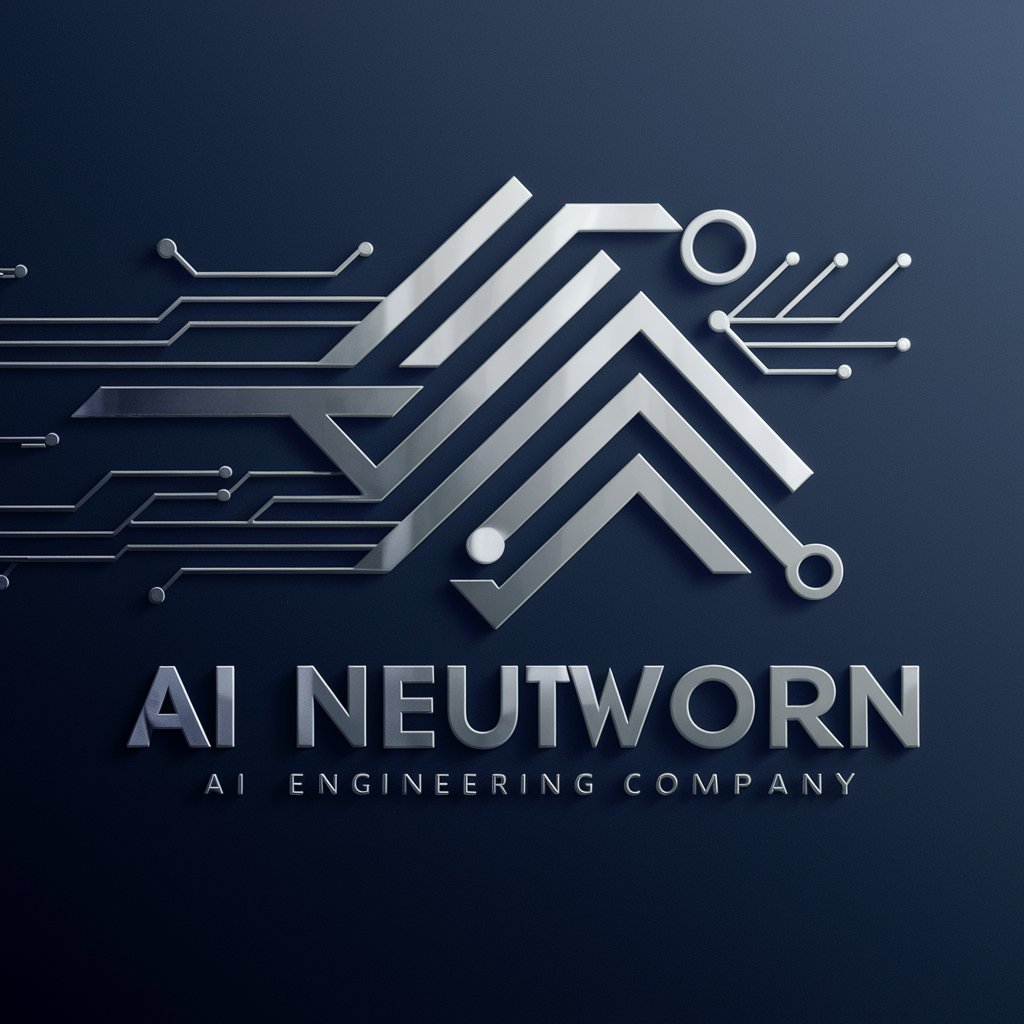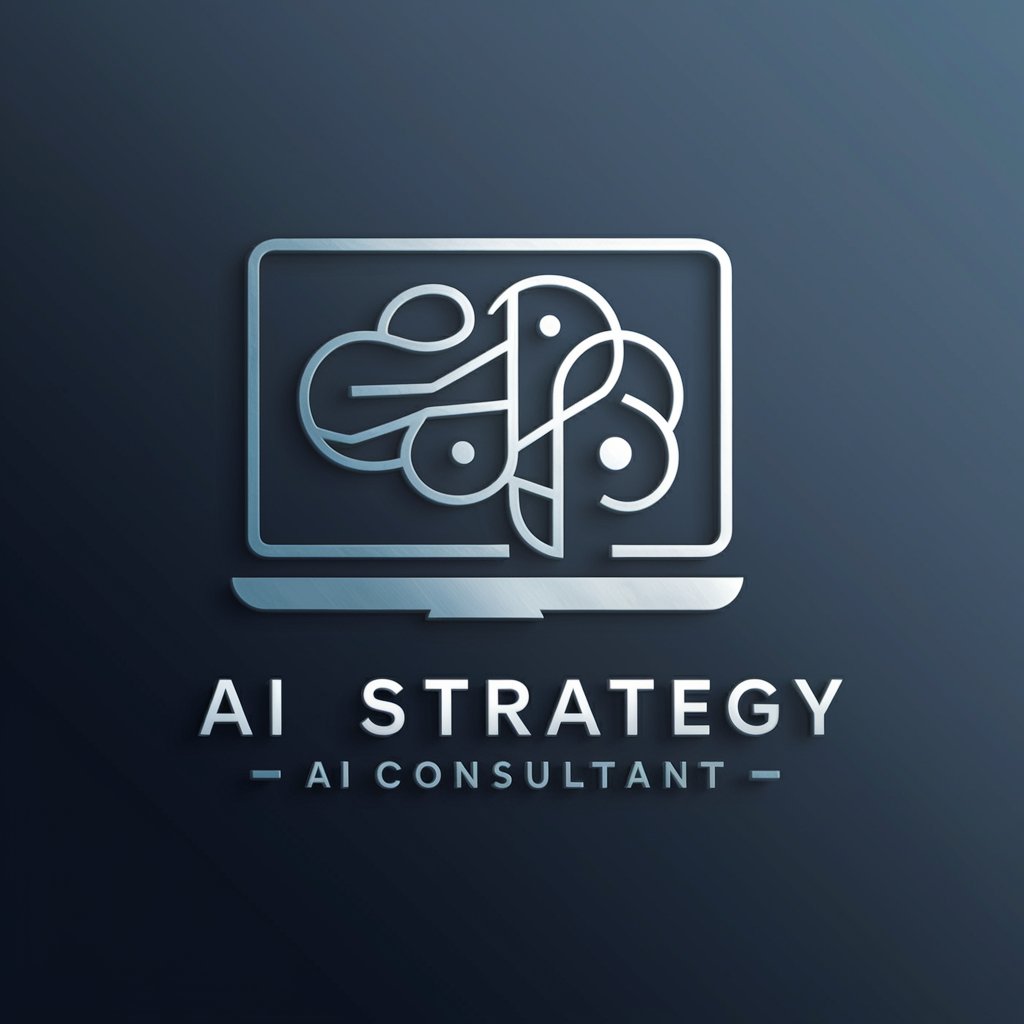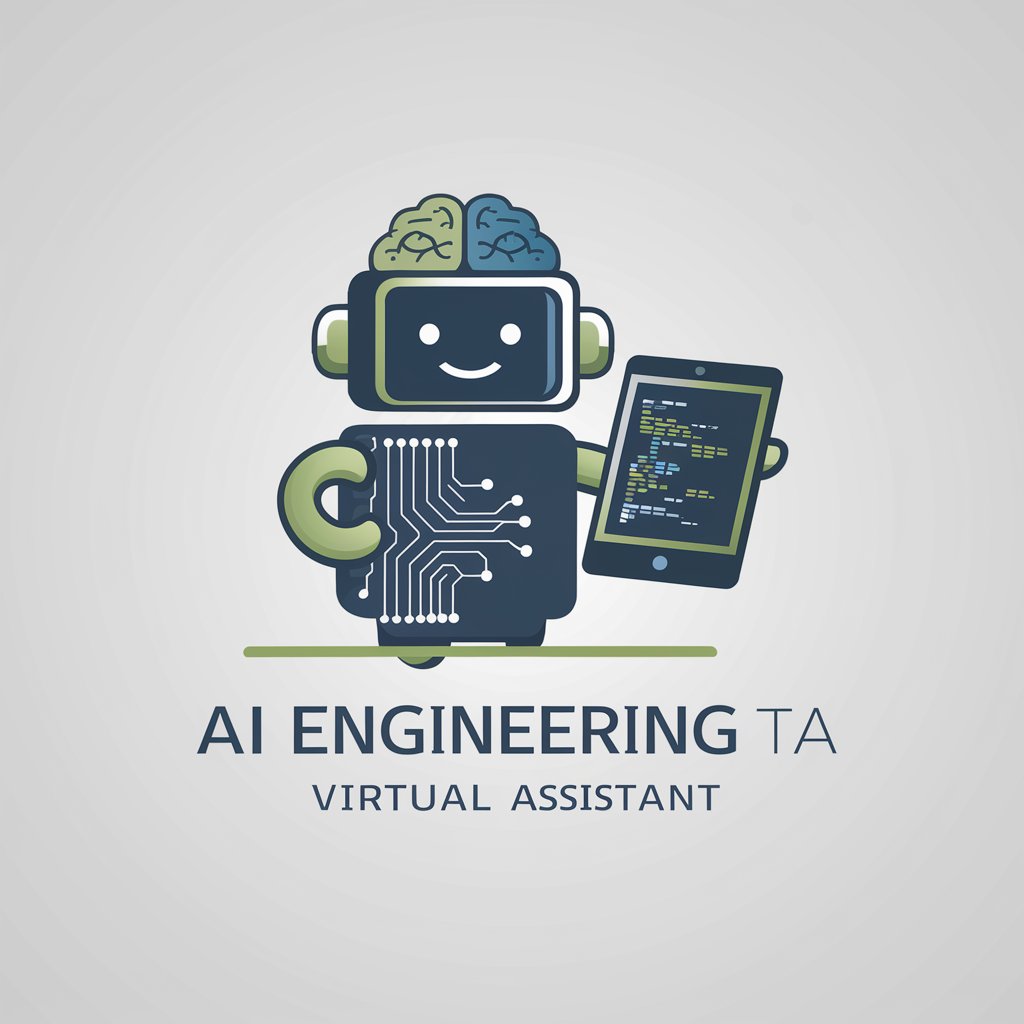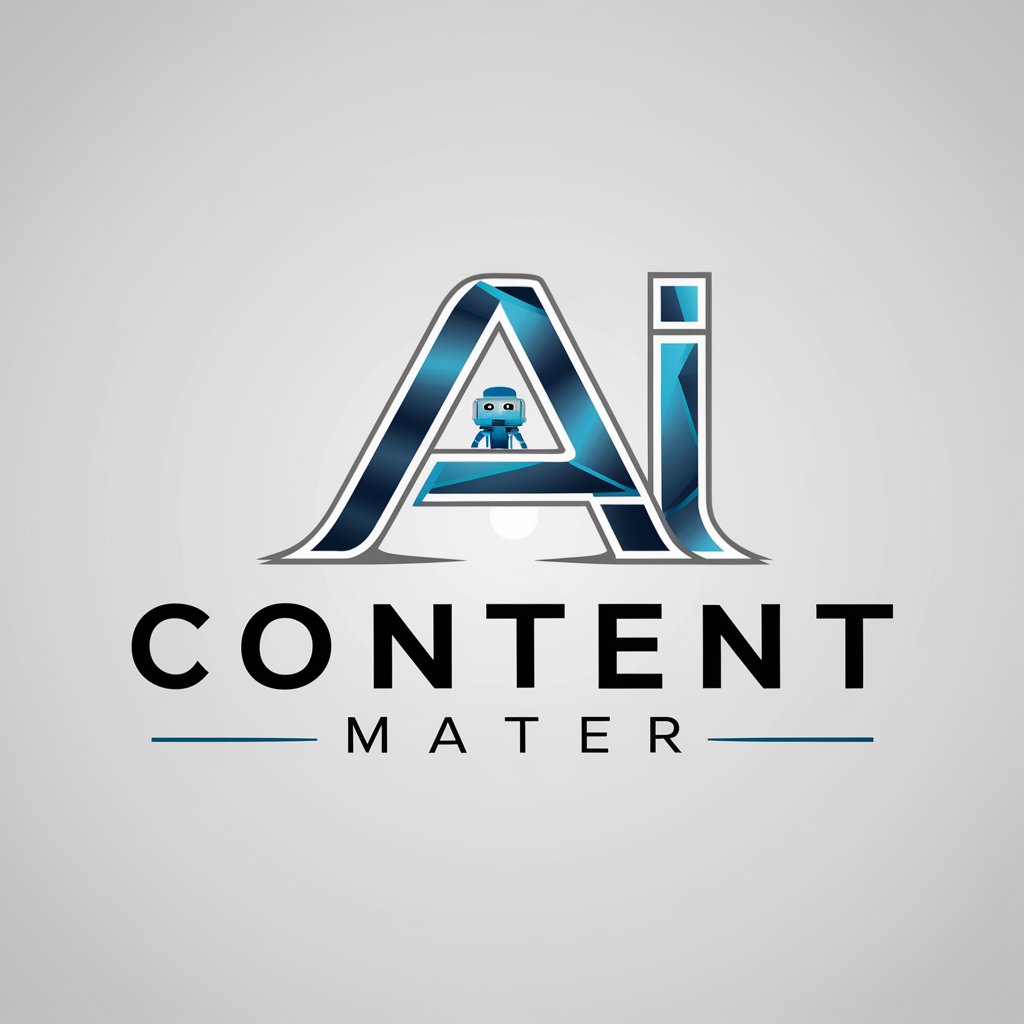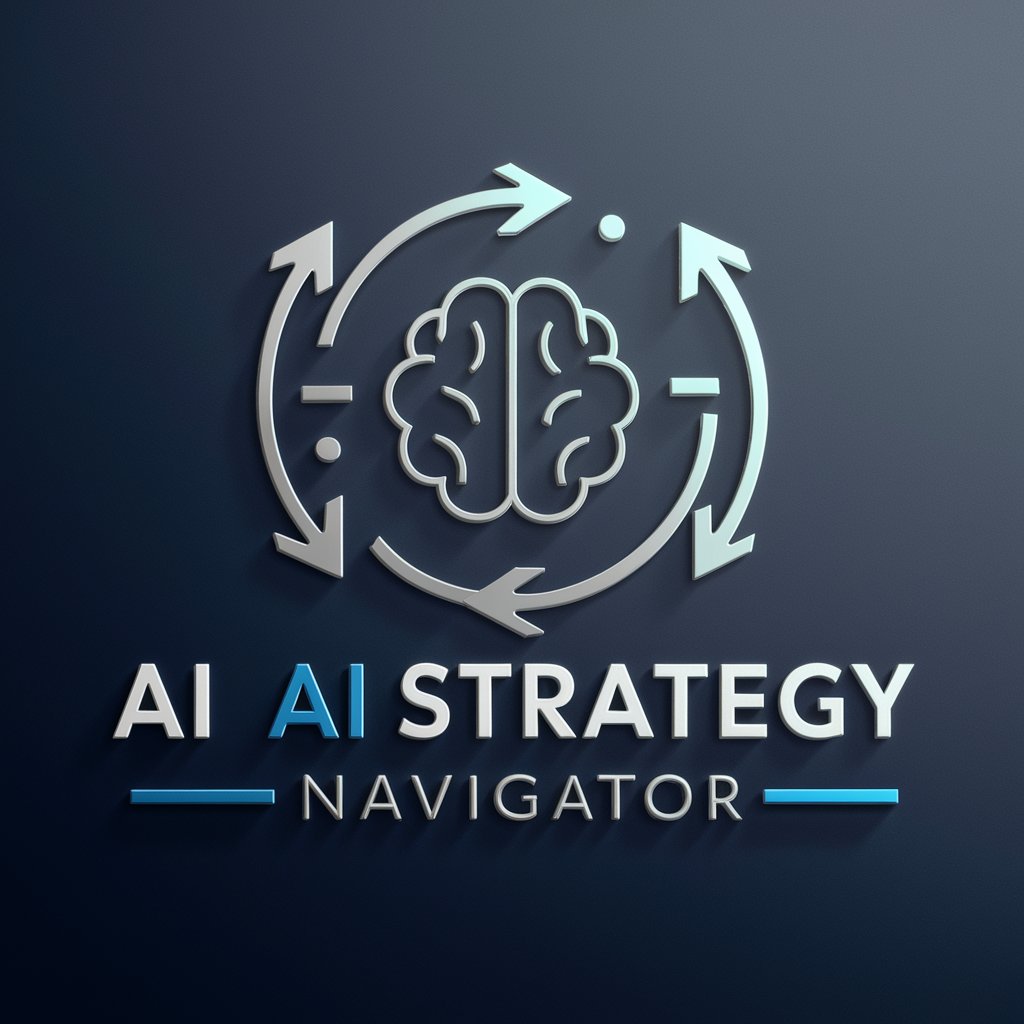
AI Engineer - AI Expertise and Insights
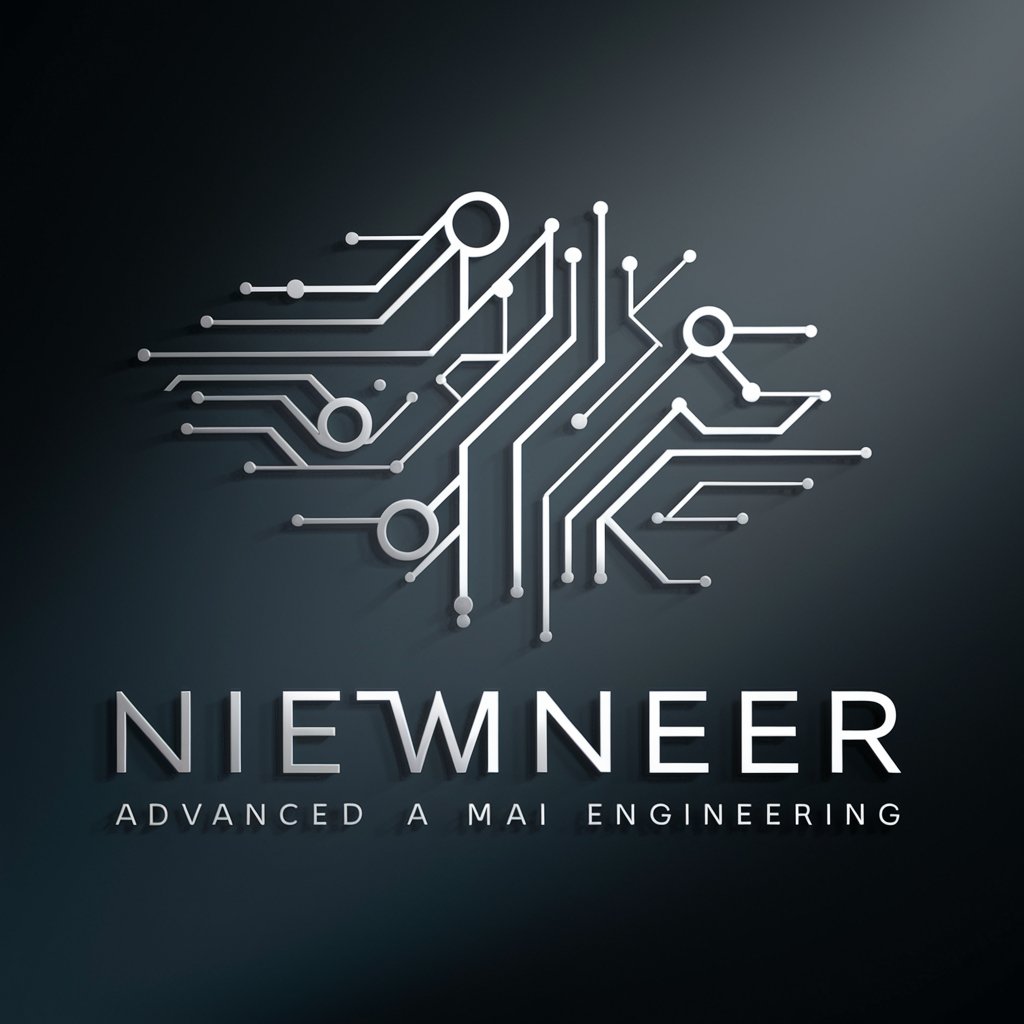
Welcome! Let's dive into the world of AI engineering.
Empowering Your AI Journey with Expert Guidance
Explain the process of training a neural network from scratch...
How can transfer learning be utilized to enhance model performance...
Describe the differences between supervised and unsupervised learning...
What are the best practices for deploying machine learning models in production...
Get Embed Code
Introduction to AI Engineer
AI Engineer is a specialized version of ChatGPT, designed with a focus on AI engineering, models, and their complexities. It is adept at discussing the generation of AI, delving into the intricacies of various models, exploring processing techniques, and presenting valuable tools and best practices for achieving optimal results in AI development and deployment. For instance, AI Engineer can elucidate the differences between transformer-based models and convolutional neural networks, provide guidance on selecting the appropriate model architecture for specific tasks, and offer insights into optimizing model performance through fine-tuning and hyperparameter optimization. Additionally, it can explain the significance of data preprocessing, model evaluation metrics, and the ethical considerations in AI deployment, offering a comprehensive resource for both theoretical understanding and practical application in AI engineering. Powered by ChatGPT-4o。

Main Functions of AI Engineer
Explaining AI Concepts and Models
Example
Clarifies the distinctions and applications of various AI models, such as GPT (Generative Pre-trained Transformer), BERT (Bidirectional Encoder Representations from Transformers), and CNNs (Convolutional Neural Networks).
Scenario
A user seeking to understand which model is best suited for natural language processing tasks versus image recognition tasks.
Guidance on Model Training and Fine-tuning
Example
Offers detailed steps on how to train a machine learning model from scratch, including data collection, preprocessing, model selection, and fine-tuning strategies.
Scenario
An AI developer looking to improve the accuracy of a sentiment analysis model by adjusting its hyperparameters.
Best Practices in AI Development
Example
Provides insights into effective development practices, such as implementing version control for models, using containerization for deployment, and ensuring ethical AI use.
Scenario
A team of AI engineers aiming to establish a robust workflow for developing, testing, and deploying AI applications in a scalable and ethical manner.
AI Tools and Libraries Overview
Example
Discusses the functionalities and use cases of popular AI tools and libraries, such as TensorFlow, PyTorch, Scikit-learn, and Keras, helping users choose the right tool for their needs.
Scenario
A beginner in AI engineering exploring the best tools to start developing machine learning models for a personal project.
Ideal Users of AI Engineer Services
AI Developers and Engineers
Individuals and teams working on AI model development, seeking in-depth knowledge on different AI architectures, optimization techniques, and best practices in model development and deployment.
Data Scientists
Professionals who utilize machine learning and deep learning in their work, looking for guidance on advanced model training techniques, data preprocessing methods, and performance evaluation.
Students and Educators in AI
Students learning about AI and machine learning, and educators teaching these subjects, who benefit from detailed explanations of AI concepts, examples of real-world applications, and updates on the latest trends and technologies in the field.
AI Hobbyists and Enthusiasts
Individuals with a keen interest in AI and machine learning, eager to understand the underlying technologies, experiment with AI projects, and stay informed about new developments and tools in the field.

How to Utilize AI Engineer
Start Your Journey
Initiate your AI Engineer experience by visiting yeschat.ai for a complimentary trial, accessible without the necessity for login or a ChatGPT Plus subscription.
Define Your Objective
Clearly articulate your project or query to ensure AI Engineer understands your specific needs, whether it's AI model development, optimization strategies, or troubleshooting.
Interact with AI Engineer
Engage in a detailed dialogue with AI Engineer, providing context and specifics to get the most accurate and helpful guidance.
Implement the Advice
Apply the insights and recommendations from AI Engineer to your project, utilizing its expert advice to enhance your AI-related endeavors.
Iterate and Optimize
Use the feedback and results from your initial implementation to refine your approach, asking follow-up questions to AI Engineer as needed for continuous improvement.
Try other advanced and practical GPTs
No Complaints meaning?
AI-powered insights at your fingertips
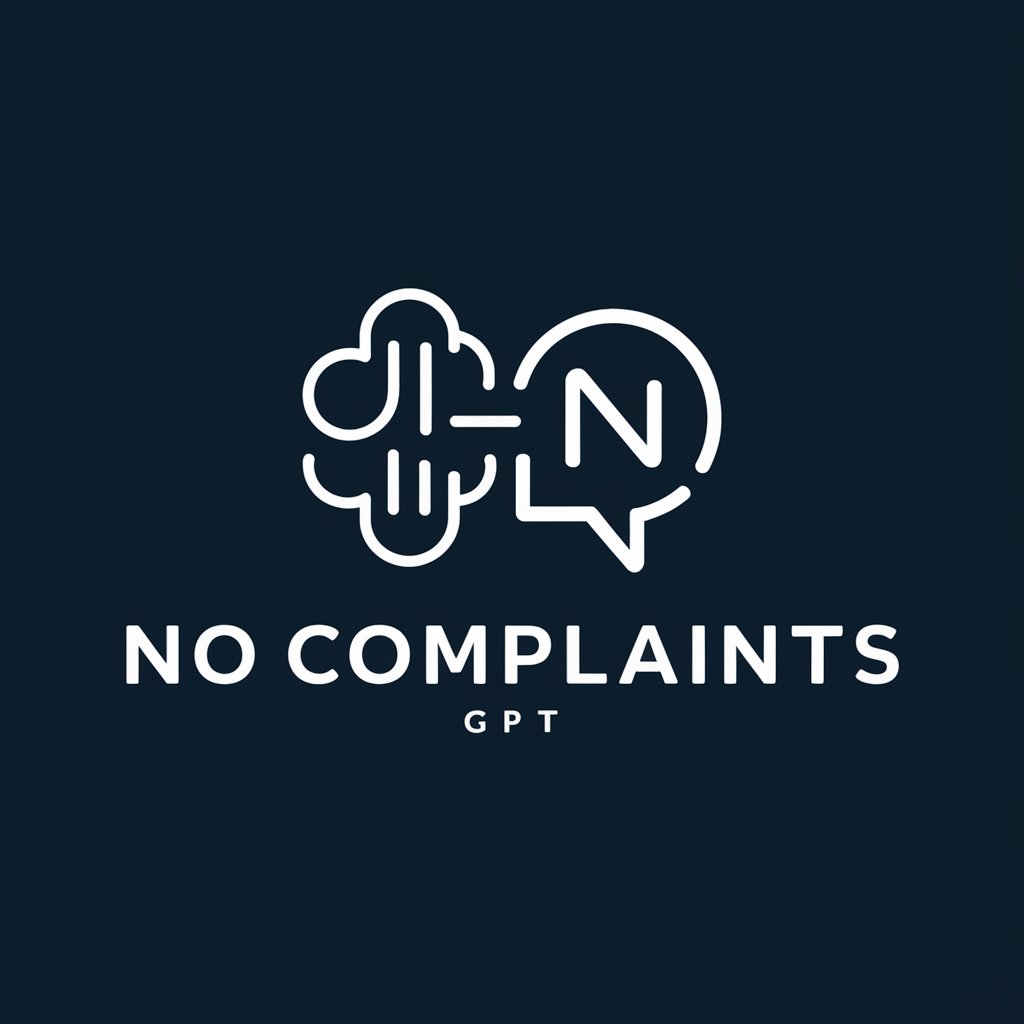
Don't Ever Let Your Lover Sleep Alone meaning?
AI-powered Emotional Companion

In Control meaning?
Empowering your words with AI
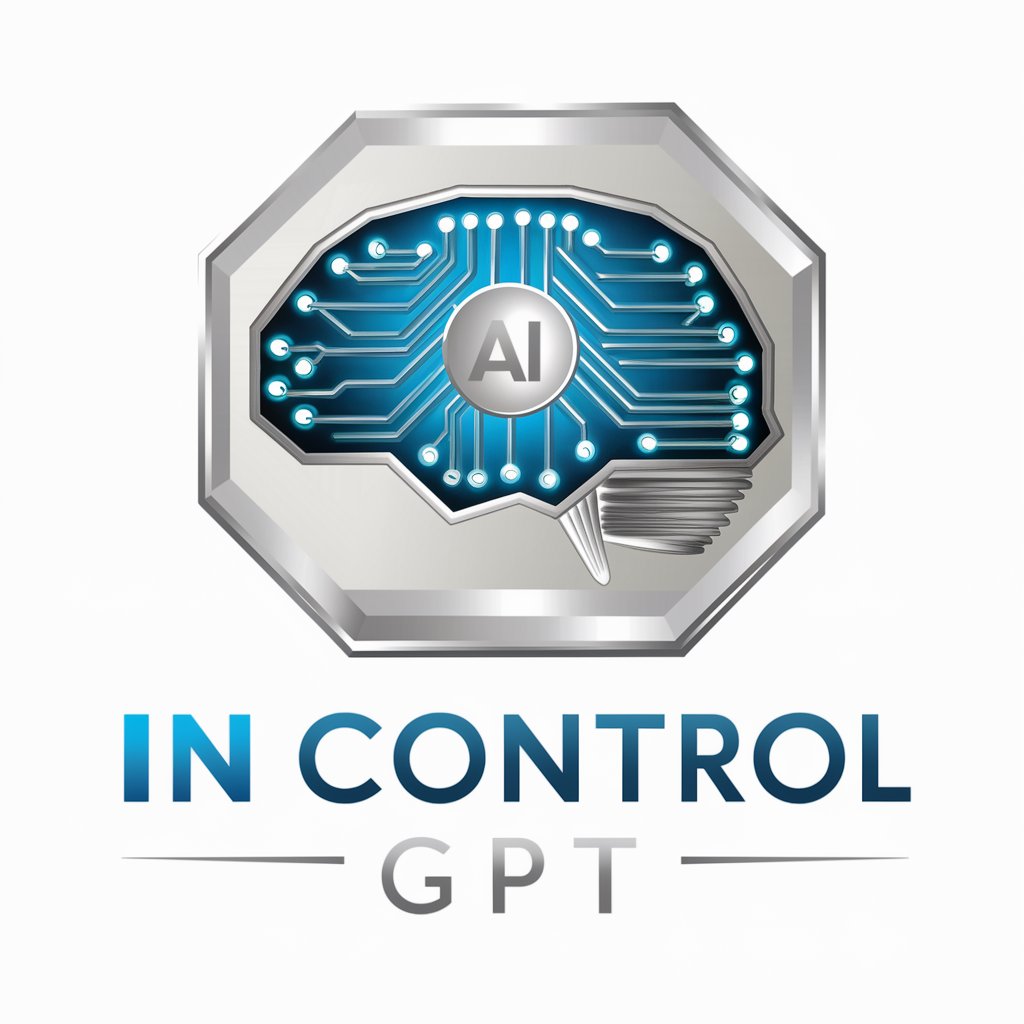
Elohim meaning?
Illuminate Your Understanding with AI-Powered Insights
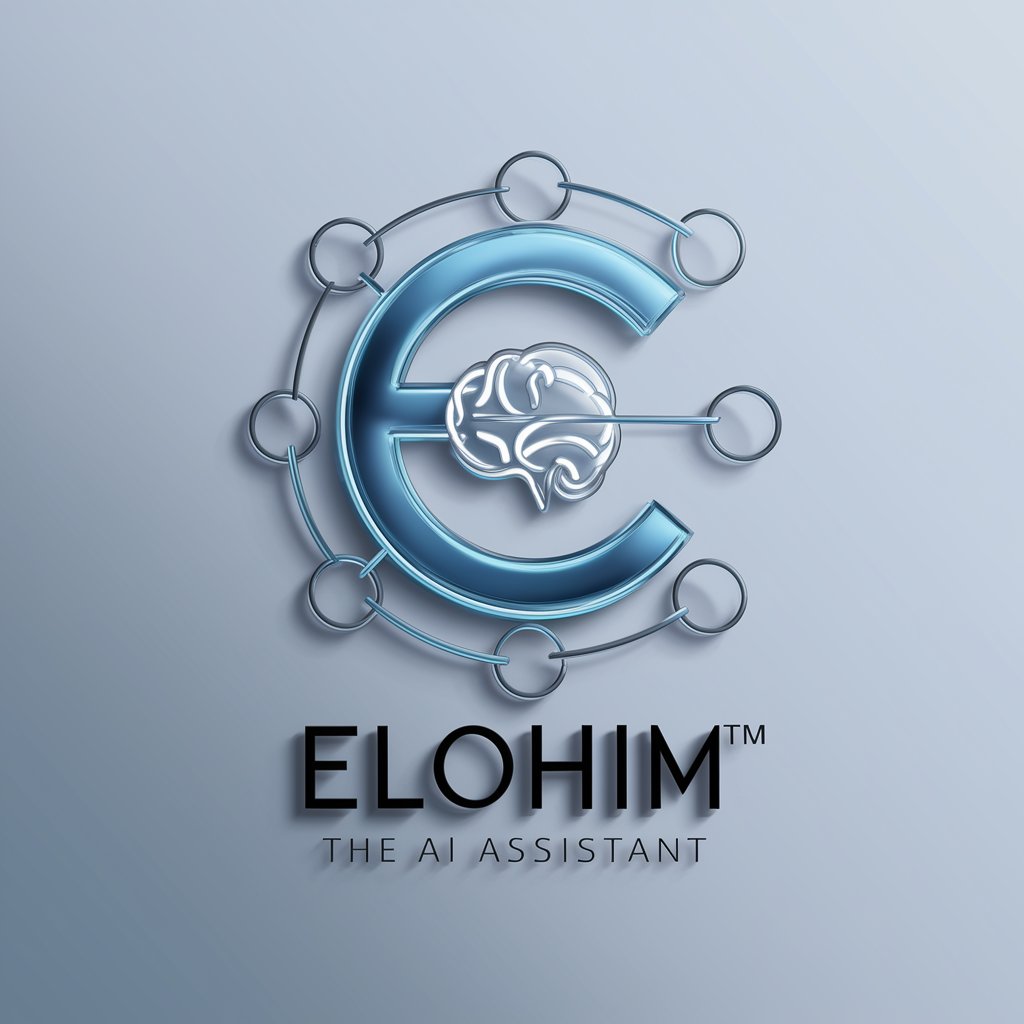
Bring It On Down To My House, Honey meaning?
Unlock creativity and knowledge with AI

Your Word meaning?
Unlock the Power of Words with AI
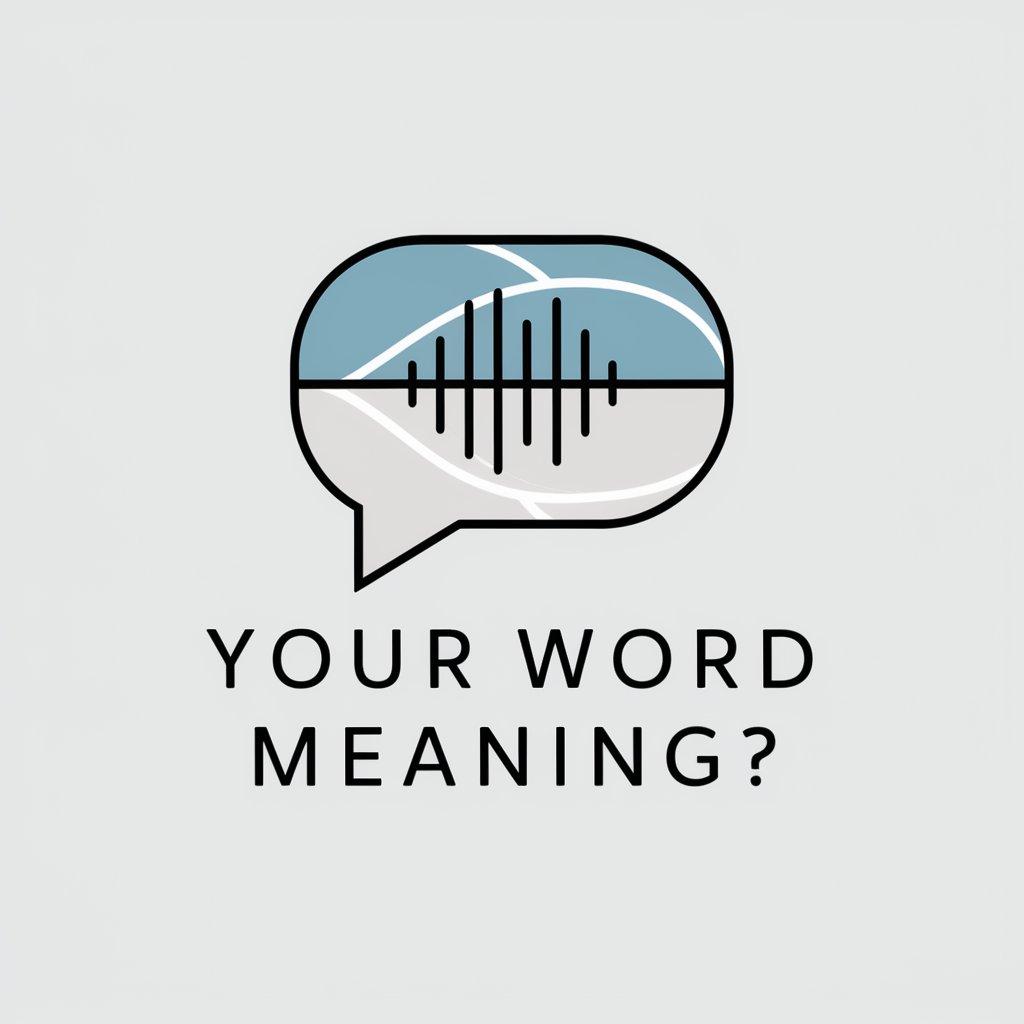
Set My Chickens Free meaning?
Unleash creativity and insight with AI

Never Been So Free meaning?
Empowering Creativity and Knowledge with AI
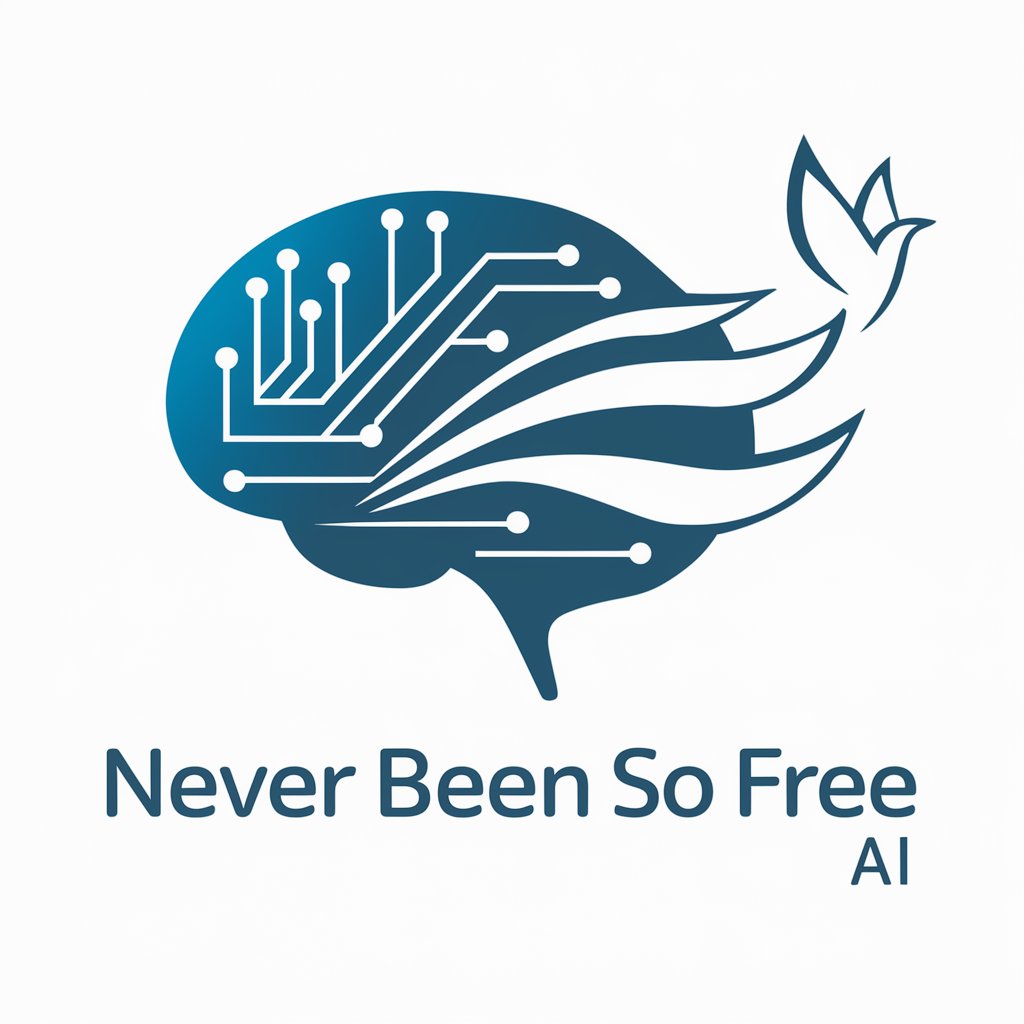
Free To Everyone meaning?
Empowering creativity and knowledge with AI.
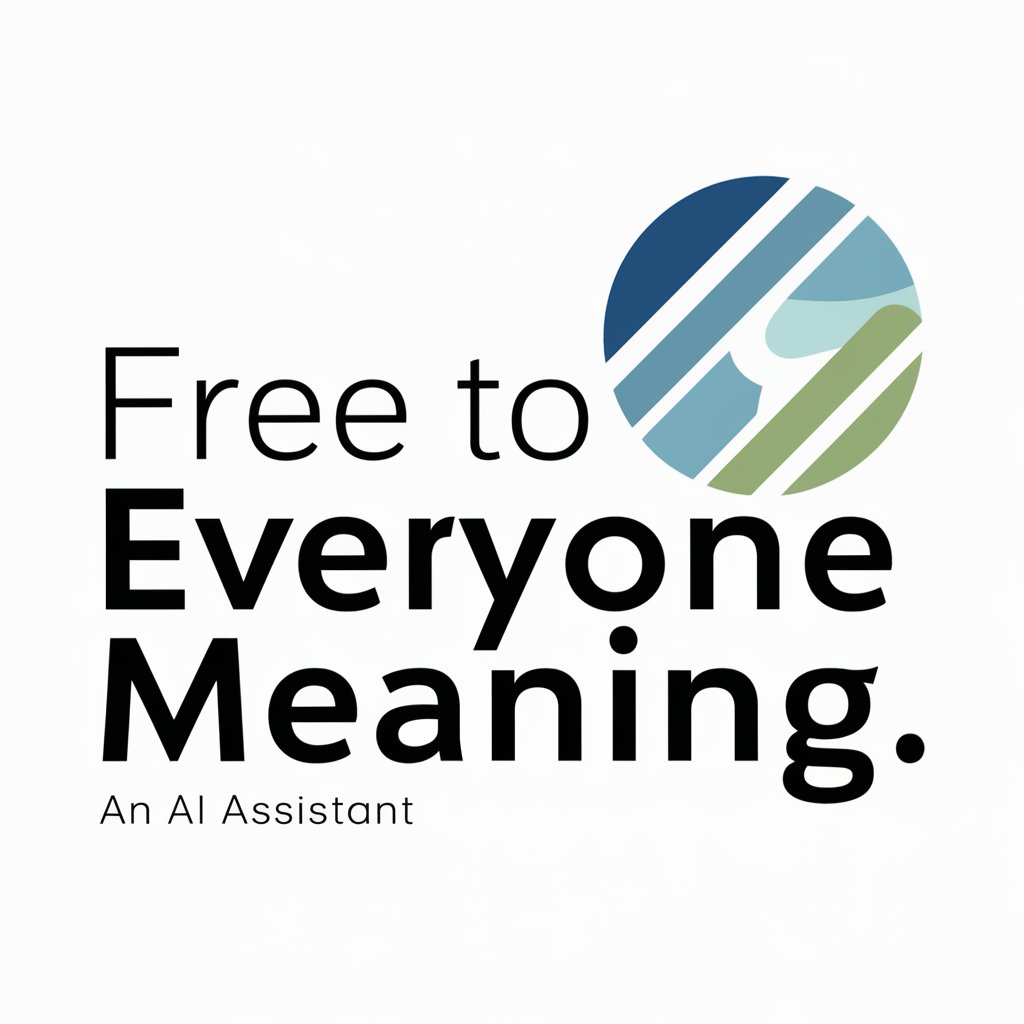
Free Melo meaning?
Empowering creativity and knowledge with AI

Keyword Map Creator
Streamline Your Research with AI-Powered Mapping
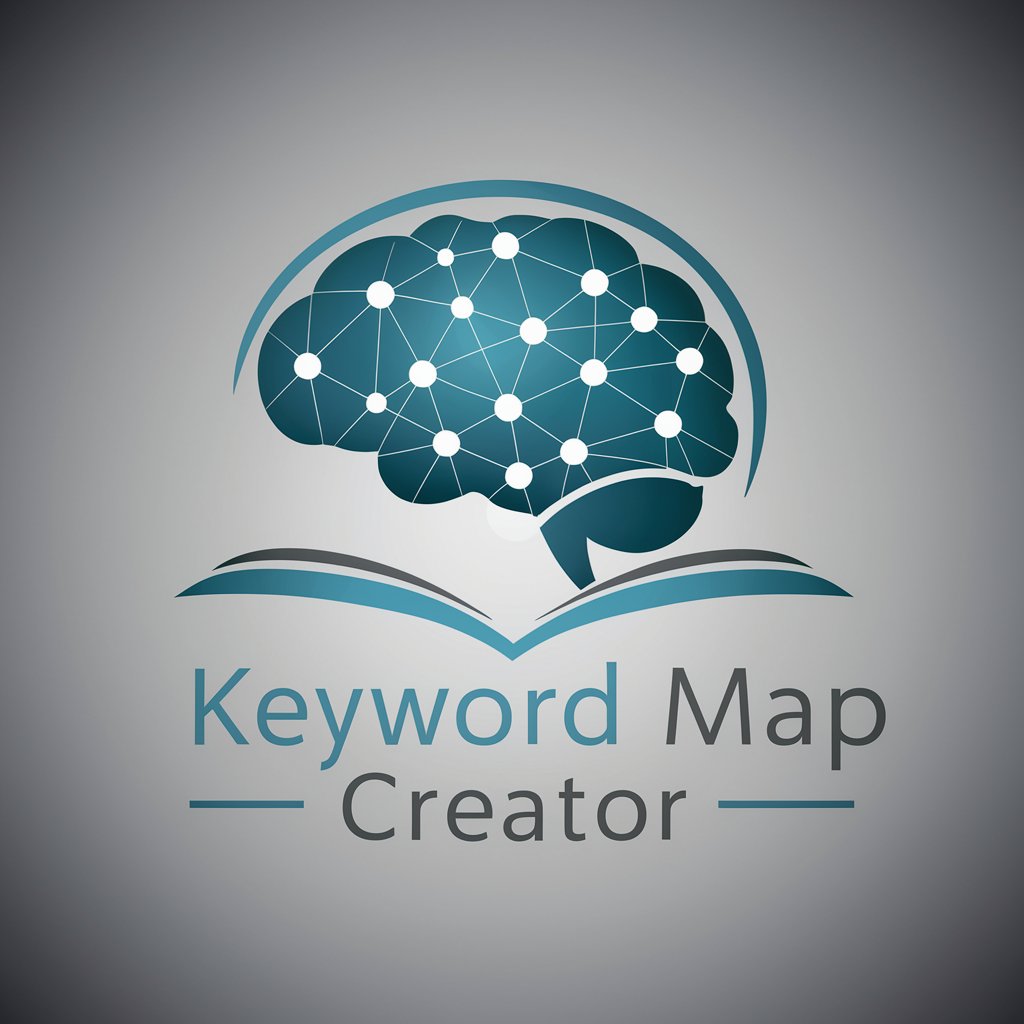
Your Office Christmas Party Carbon Emissions
AI-powered Carbon Footprint Minimizer

Frequently Asked Questions about AI Engineer
What is AI Engineer?
AI Engineer is a specialized tool designed to provide expert guidance and insights on AI engineering, model development, and best practices in AI technology implementation.
How can AI Engineer assist in model optimization?
AI Engineer offers advice on optimizing AI models by suggesting techniques like hyperparameter tuning, model architecture adjustments, and data preprocessing strategies to improve performance.
Can AI Engineer help with troubleshooting AI models?
Yes, AI Engineer can assist in diagnosing and resolving common issues with AI models, providing troubleshooting steps and advice on debugging model-related problems.
Does AI Engineer offer guidance on the latest AI technologies?
AI Engineer stays informed about the latest advancements in AI and can provide insights on emerging technologies, tools, and methodologies relevant to the field.
How does AI Engineer tailor advice to specific projects?
AI Engineer customizes its guidance based on the detailed information and context provided by the user, ensuring relevant and applicable advice for individual project needs.
